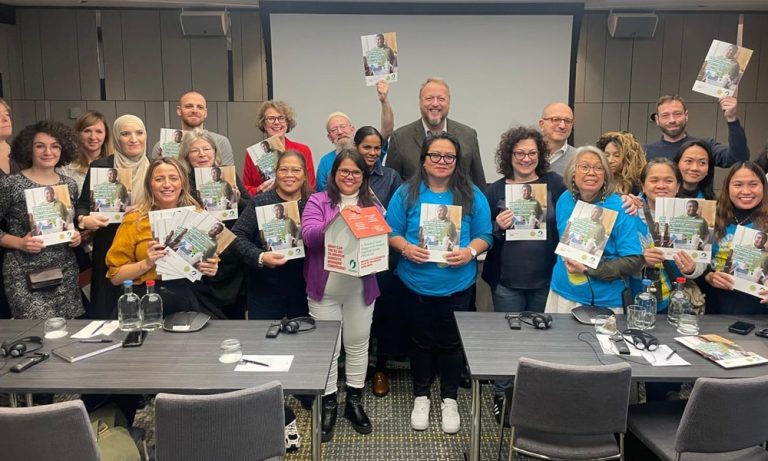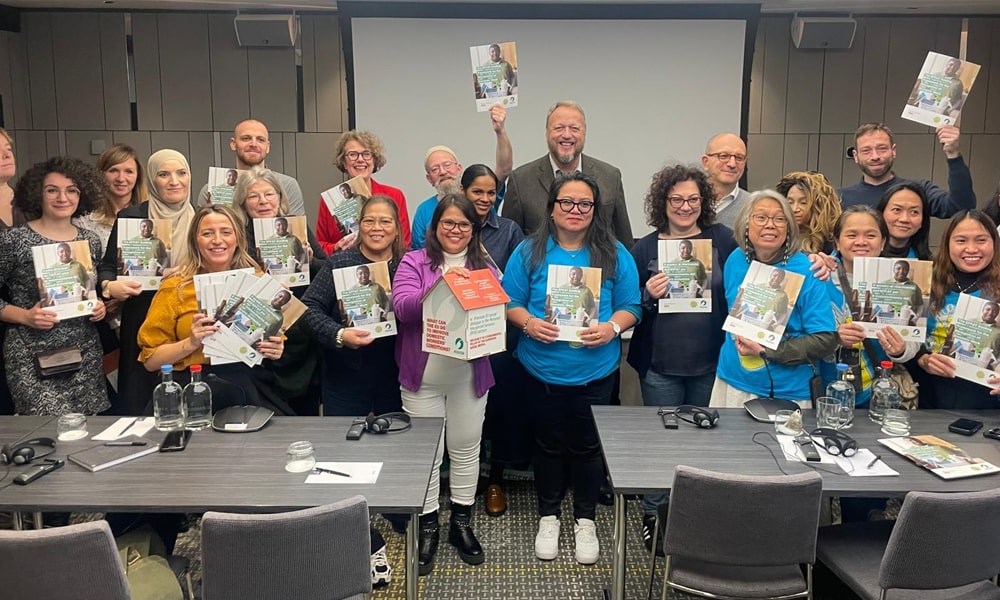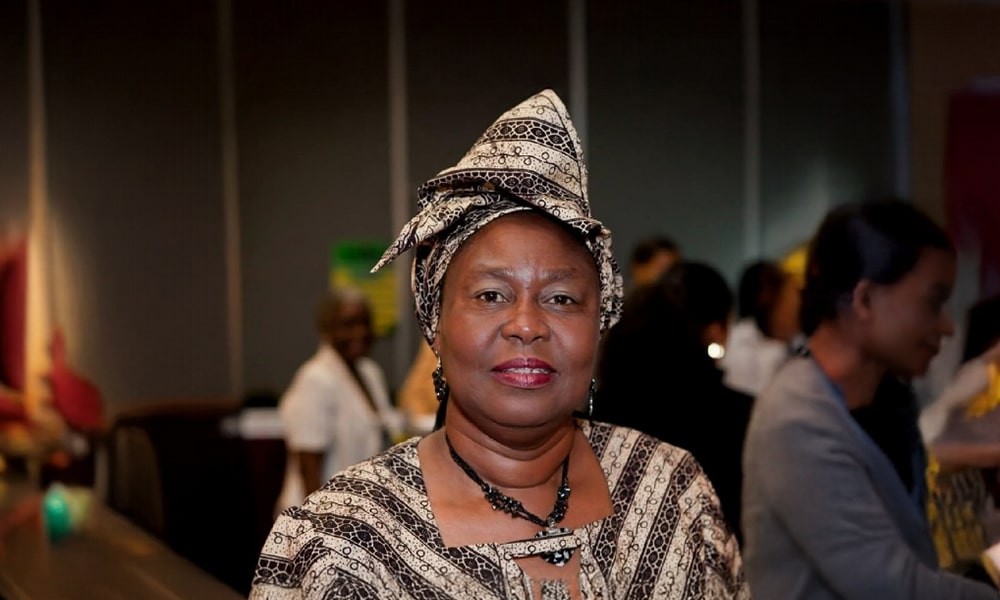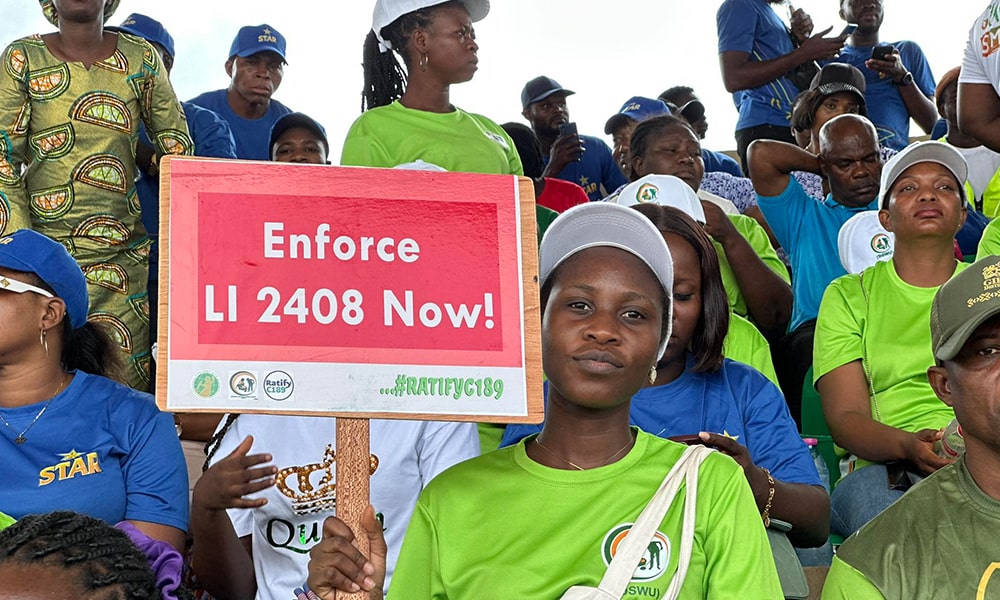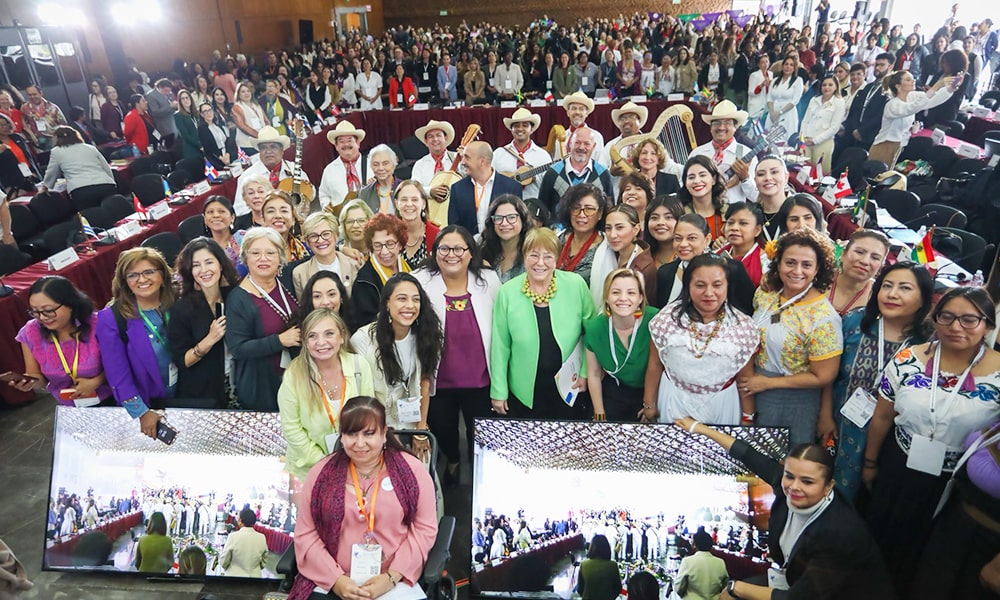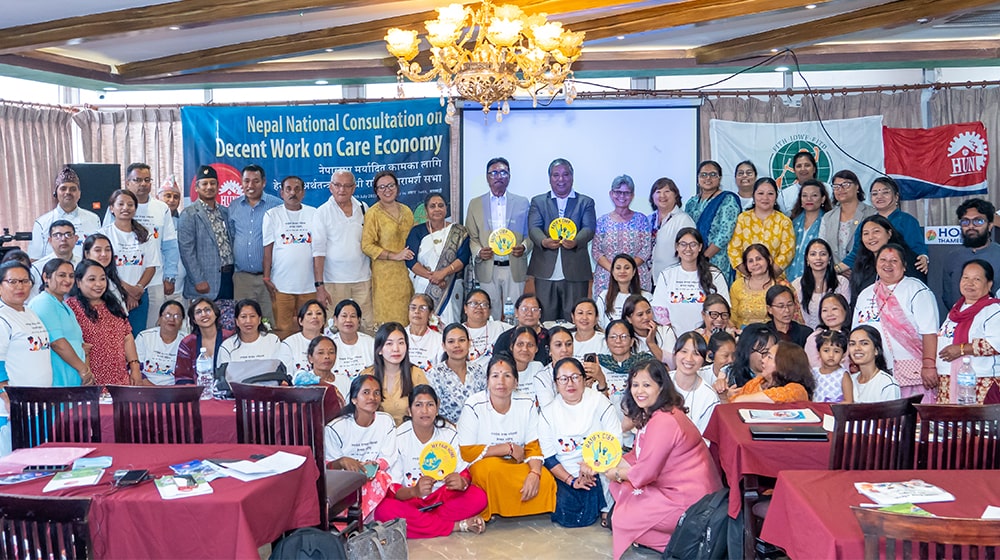IDWF Statement on the International Day of Care and Support 2025

On the International Day of Care and Support, we celebrate all domestic workers whose daily care work sustains homes, families, and entire communities worldwide, powering social and economic development. Today, we reaffirm our commitment to continue fighting for recognition, decent work, and dignity for domestic workers in the care economy. Because if it’s about care, it’s about domestic workers.
This is the “era of care” — a pivotal moment in which global care needs are rising and will continue to rely on domestic workers. Across the world, over 75 million people are engaged in domestic work, 76% of whom are women, largely racialized and from the most marginalized groups in society. Their role in the care economy is central: they represent at least 25% of the care workforce, providing both direct and indirect care work that makes all other paid work possible and accounts for 9% of the global GDP, as stated in the ILO’s 2024 Resolution concerning Decent Work and the Care Economy. By 2030, 2.3 billion people will need care, and around 300 million new jobs will be required to meet that demand (ILO, 2022). There is no way to prevent a global care crisis without decent work for domestic workers as the backbone of the care economy. It’s not a privilege; it is a right.
However, most societies continue to place low social and economic value on care work, often considering it “unskilled,” unproductive, or not even “real” work. The deep inequalities reflected in the current social organization of care — rooted in slavery, colonialism, and patriarchy — are particularly acute in domestic work, where multiple and intersecting forms of discrimination have led to the exclusion of domestic workers from the protection and enjoyment of the rights to which they are entitled as wage workers. This explains the poor working conditions, the high rates of informality (over 80% globally), and the alarming prevalence of violence and harassment, forced labor, and child labor in paid domestic work. These decent work deficits are further exacerbated for migrant domestic workers who, despite being the main providers of care in higher-income countries, are often explicitly excluded from fundamental labor rights.
Against this backdrop, the Inter-American Court of Human Rights (IACtHR) has recently issued Advisory Opinion OC-31/25, which recognizes care as a stand-alone human right — meaning that everyone has the right to care, to be cared for, and to self-care, and that States have an obligation to guarantee it. This historic ruling is based on the standards established in several key ILO conventions, specifying that C189 must constitute the fundamental pillar of national care systems and policies. The IACtHR also incorporated the IDWF’s contributions to its consultative process. For our movement, it is particularly significant that the ruling explicitly recognizes domestic workers as essential care providers and calls on governments to implement differentiated measures to ensure they, including those in informal employment, enjoy the same rights as all other workers. This milestone is crucial to advance our demand that care is a need, a right, and work — not only in the Americas, but also globally.
In this context, the IDWF has launched its Theory of Change, a roadmap to achieve decent work for domestic workers in the era of care. This tool, built upon our movement’s history of struggle and achievements, provides strategies not only to address the challenges we face but also to leverage the opportunities arising from the care economy. Our journey — from the margins of the organized labor movement to becoming a recognized Global Union Federation — demonstrates that we have been able to organize the “unorganizable” and make the “unthinkable” possible, starting with the adoption of ILO Convention 189 in 2011, the first instrument to establish that domestic work is real work and that domestic workers have the same rights as all other workers.
From this ground we have gained, on this International Day of Care and Support, our movement demands:
- Decent work for domestic workers, including migrants on an equal footing: protection under ILO C189 standards — both in law and in practice; full access to social security benefits; fair wages, no lower than those of other care workers (equal pay for work of equal value); occupational safety and health; protection from gender-based violence and harassment and from any form of discrimination; and freedom to organize and bargain collectively.
- Recognition of care as a right and a public good, in line with the IACtHR ruling.
- Robust national care systems and policies: These must be universal, inclusive, and gender-responsive, and have ILO C189 as a central pillar — recognizing domestic workers as part of the care workforce, with the right to provide care under decent conditions and to receive care for themselves and their families.
- Inclusive institutional spaces for social dialogue: Domestic workers must have voice and representation in all spaces where care-related decisions and policies are shaped.
- Regulation of digital labor platforms: Digital platforms providing care services must ensure the proper classification of domestic workers, recognizing the existence of an employment relationship and guaranteeing all rights derived from it.
- Skills recognition and pathways to formalization: Domestic workers’ skills — whether acquired through training or experience — must be recognized, valued, and fairly compensated. This and other pathways toward the formalization of domestic work must be prioritized.
“Domestic workers are the driving force of life. Care is not a commodity — we provide quality care and essential services. National care policies and plans must include domestic workers and promote fair and decent labor and social conditions for all those who perform this invaluable work. Together, we can build a more just and equal future.”
Carmen Brítez, IDWF President
This October 29, with ILO Convention 189 as our vision, our goal, and our framework for action, domestic workers reaffirm our crucial role in building care societies. We power change in the era of care!

